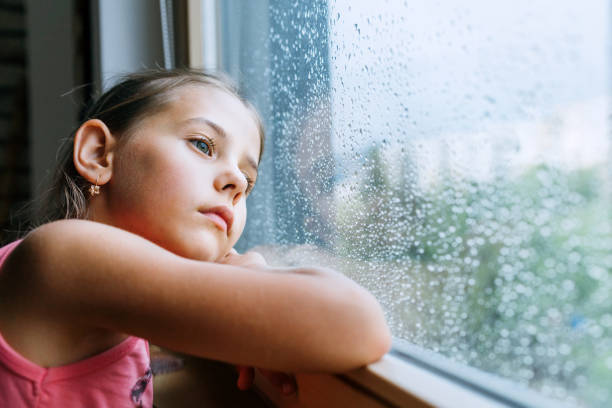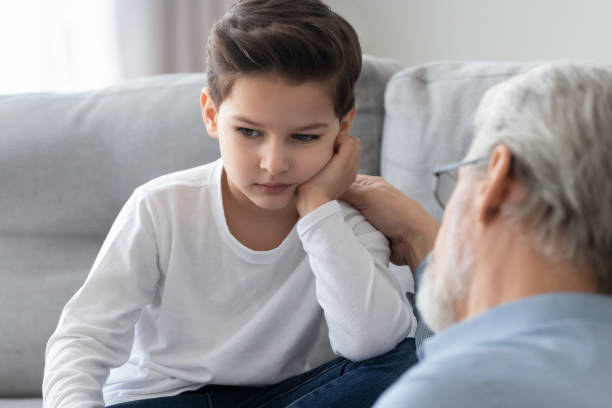
Children are forced to face things every day that are hard to imagine; death of a loved one, incarceration of a caregiver, living with an addicted parent, enduring incest or sexual abuse by the hands of a family member, and the list can go on and on. Research on Aversive Childhood Experiences (ACE’s) have brought the concepts of trauma and resiliency into the forefront. The general idea of the research is the higher the number of ACE’s a child had, the more at risk they are. What warrants future exploration, is what are the factors that lessen the impact of the negative experiences. How does a child with high ACE’s become traumatized and scarred for life, while another child with a similar experience can thrive in adulthood? What are the protective factors that mitigate the lifelong negative impact of traumatic exposure?
Resilience is the reason that some people bounce back from trauma easily and “beat the odds” and others don’t. There are variables that promote the likelihood of a better recovery from traumatic exposure, such as a caregiver’s healthy psychological functioning, emotional and physical availability, and sensitivity to the child’s emotional needs.
 Aversive experiences at home, school, and in communities impair the normal development of the brain and nervous system, the immune system, and the body’s stress response systems. The results can include:
Aversive experiences at home, school, and in communities impair the normal development of the brain and nervous system, the immune system, and the body’s stress response systems. The results can include:
- impaired learning
- compromised health
- difficulties with emotional self-regulation that last into adulthood
Emerging research is exploring those factors that can minimize the injury caused by childhood trauma.
Positive, Supportive Relationships
What is interesting about this research is the importance that close relationships (family, friends, and community) have in both causing trauma and recovering from it. Studies show that children with secure attachment relationships with their caregiver(s) are better able to regulate their responses to upsetting situations, compared to children with less secure caregiver attachments.
If you’re wondering if your actions have already damaged your children beyond repair- you’re not alone. The answer is no, not if you take appropriate measures for your children. Many parents, often well intentioned or coming from a place of their own unresolved trauma, have knowingly or unknowingly, exposed their children to aversities that have affected their emotional, intellectual, and even physical development. If, because of your own personal limitations (being in a destructive or toxic relationship, struggling with personal addiction), you can’t be the caregiver your child requires, it is important you find a way to get them that support from another caring, supportive adult.
 Finding one consistently caring adult (teacher, therapist, aunt, grandparent) can act as a protective factor against trauma. Many schools, health care facilities, and community spaces are adopting an approach called Trauma Informed Care (TIC) to ensure that children, regardless of their disclosure of trauma, can have a safe space to go. Access to stable, caring adults in a safe place is important for kids to recover from traumatic exposure.
Finding one consistently caring adult (teacher, therapist, aunt, grandparent) can act as a protective factor against trauma. Many schools, health care facilities, and community spaces are adopting an approach called Trauma Informed Care (TIC) to ensure that children, regardless of their disclosure of trauma, can have a safe space to go. Access to stable, caring adults in a safe place is important for kids to recover from traumatic exposure.
Learn Emotional Self-Regulation/ Self- Mastery
Learning positive ways of self-regulation is a critical feature of adults who thrive in the world. When children grow up in a house with violence and addiction, chances are they do not have good role models who demonstrated positive ways of managing their emotional pain. Being able to identify your emotions and verbalize how you are feeling without acting out or numbing those feelings is a critical feature of those who display resiliency.
As the understanding about TIC grows, many schools and children-serving organizations, develop programs that improve children’s ability to recognize and manage their emotions through meditation, yoga, art, music, or sports. Research has found that engaging survivors in “neutral, fun” tasks and physical games can allow them to experience feeling relaxed and gives them a chance to feel a sense of mastery or accomplishment over a task. These activities create needed opportunities to learn social skills, gain a sense of self control, and teach ways to develop social boundaries with other people.
Control Physiological Arousal
 Hypervigilance is a heightened state of awareness that is part of the fight / flight/ freeze response that is common in children who have lived in abusive or neglectful environments. The result of this chronic systematic overload is unhealthy exposure to cortisol, the stress hormone, that is highly correlated with the detrimental health consequences common in those who have suffered severe abuse and neglect. One of the additional problematic features of hypervigilance, is the person who suffers from it becomes less skilled at identifying real dangers in the world. People who have experienced complex traumas can mistakenly over report danger (chronic arousal) or be numb to real dangers. This is one of the reasons that there is a connection between high ACE’s score and the probability of being raped as an adult; at an ACE score of 0 there is a 5% chance of being raped as an adult, while for those with an ACE score of 4 or more the probability rises to 33%. Children with a high ACE score benefit from retraining their brains and bodies to modulate their hyper or hypo arousal. There are numerous treatment modalities:
Hypervigilance is a heightened state of awareness that is part of the fight / flight/ freeze response that is common in children who have lived in abusive or neglectful environments. The result of this chronic systematic overload is unhealthy exposure to cortisol, the stress hormone, that is highly correlated with the detrimental health consequences common in those who have suffered severe abuse and neglect. One of the additional problematic features of hypervigilance, is the person who suffers from it becomes less skilled at identifying real dangers in the world. People who have experienced complex traumas can mistakenly over report danger (chronic arousal) or be numb to real dangers. This is one of the reasons that there is a connection between high ACE’s score and the probability of being raped as an adult; at an ACE score of 0 there is a 5% chance of being raped as an adult, while for those with an ACE score of 4 or more the probability rises to 33%. Children with a high ACE score benefit from retraining their brains and bodies to modulate their hyper or hypo arousal. There are numerous treatment modalities:
- medication management
- yoga
- neuro-biofeedback
- mindfulness meditation
- traumatic re-enactment
- traditional individual or group therapy
- journaling
- trauma theater
- Eye Movement Desensitization and Reprocessing (EMDR)
Everyone responds differently to both type and duration of treatment, but the mere act of seeking help represents a step in the healthy direction of self-care. Self-care does not come naturally to those who suffered childhood abuse or neglect, so learning the behaviors of self-care are critical to becoming a healthy adult.
Adopt and Optimistic View of the World
 Adults who thrive adopt an optimistic mindset. Though many did not grow up with empathy being exhibited towards them, learning how to be empathic to others is highly correlated with positive adult outcomes. Having adults respond with empathy when disclosures of childhood abuse and neglect are made is a critical element in future healing. Many victims of childhood abuse will cite the moment of their initial abuse disclosure as a critical moment. The response they receive has the power to further victimize the child or, if handled properly, be the first step in the child’s ability to be hopeful. One of the crucial elements of TIC is to ensure that all trusted adults are “disclosure ready”, so when a child shares a story of abuse or neglect, the adults can respond appropriately and immediately get the children the help they need. Without professionals being informed about the adult manifestations of childhood trauma (addiction, obesity, depression), many professionals will waste time focusing on the symptoms and miss the opportunity to address the root cause of the now maladaptive behavior. When professional reframe the maladaptive behaviors as once being rooted in the child’s very survival, it helps them address the core issue.
Adults who thrive adopt an optimistic mindset. Though many did not grow up with empathy being exhibited towards them, learning how to be empathic to others is highly correlated with positive adult outcomes. Having adults respond with empathy when disclosures of childhood abuse and neglect are made is a critical element in future healing. Many victims of childhood abuse will cite the moment of their initial abuse disclosure as a critical moment. The response they receive has the power to further victimize the child or, if handled properly, be the first step in the child’s ability to be hopeful. One of the crucial elements of TIC is to ensure that all trusted adults are “disclosure ready”, so when a child shares a story of abuse or neglect, the adults can respond appropriately and immediately get the children the help they need. Without professionals being informed about the adult manifestations of childhood trauma (addiction, obesity, depression), many professionals will waste time focusing on the symptoms and miss the opportunity to address the root cause of the now maladaptive behavior. When professional reframe the maladaptive behaviors as once being rooted in the child’s very survival, it helps them address the core issue.
Post- Traumatic Growth (PTG)
 Many individuals who have struggled and thrived after childhoods fraught with abuse and neglect report having a renewed sense of appreciation of life and a stronger sense of their own personal strength. What people need to know about PTG is that it is not a miracle that happens to a few extraordinary people– it is a learned trait that comes through hard work and practice, with the expectation of regular set- backs along the way. If you suspect that you may have unresolved issues from child trauma, regardless of your current age, there are trauma-informed specialist who can help you. With the right supports and trauma-tailored interventions, the ability to heal and grow from adversity is boundless.
Many individuals who have struggled and thrived after childhoods fraught with abuse and neglect report having a renewed sense of appreciation of life and a stronger sense of their own personal strength. What people need to know about PTG is that it is not a miracle that happens to a few extraordinary people– it is a learned trait that comes through hard work and practice, with the expectation of regular set- backs along the way. If you suspect that you may have unresolved issues from child trauma, regardless of your current age, there are trauma-informed specialist who can help you. With the right supports and trauma-tailored interventions, the ability to heal and grow from adversity is boundless.
“Turn your wounds into wisdom.”- Oprah Winfrey (Victim of rape at age 9 and on-going sexual abuse from ages 10 to 14).



Join the Conversation